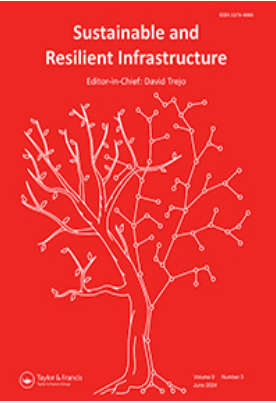弹性和可持续的供应商选择:SCOR 4.0和机器学习方法的集成
IF 2.2
Q2 ENGINEERING, CIVIL
引用次数: 14
摘要
摘要本文的目的是实现一个集成供应链职业参考(SCOR)模型的机器学习模型,为制药公司开发一个基于人工智能的弹性和可持续供应商选择系统。最初,结合了最佳-最差方法(BWM)的SCOR 4.0模型已被用于开发客户满意度框架,并确定供应商的关键要素。随后,实现了梯度提升机器学习模型来对供应商进行分类,并根据可接受性得分从最佳到最差对供应商进行排名。结果表明,梯度提升算法作为分类器表现良好,其中可接受性得分最高的供应商代表最好的供应商,可接受性分数最低的供应商代表最差的供应商。这项研究有助于我们理解集成的SCOR和机器学习模型如何以及何时可以帮助改进供应商选择。本文章由计算机程序翻译,如有差异,请以英文原文为准。
Resilient and sustainable supplier selection: an integration of SCOR 4.0 and machine learning approach
ABSTRACT The purpose of this research paper is to implement a machine learning model with the integration of the supply chain occupational reference (SCOR) model to develop an artificial intelligence-based system for resilient and sustainable supplier selection for a pharmaceutical company. Initially, the SCOR 4.0 model with the integration of Best Worst Method (BWM) has been used to develop the framework of customer satisfaction and to identify the critical elements of the suppliers. Later, the gradient boosting machine learning model has been implemented to classify the supplier as well as rank the suppliers from best to worst based on the acceptability score. The result shows that the gradient boosting algorithm performs well as a classifier, where the supplier with the most acceptability score represents the best supplier and the supplier with the least acceptability score represents the worst supplier. This study contributes to our understanding of how and when integrated SCOR and machine learning models can help improve supplier selection.
求助全文
通过发布文献求助,成功后即可免费获取论文全文。
去求助
来源期刊

Sustainable and Resilient Infrastructure
ENGINEERING, CIVIL-
CiteScore
7.60
自引率
10.20%
发文量
34
期刊介绍:
Sustainable and Resilient Infrastructure is an interdisciplinary journal that focuses on the sustainable development of resilient communities.
Sustainability is defined in relation to the ability of infrastructure to address the needs of the present without sacrificing the ability of future generations to meet their needs. Resilience is considered in relation to both natural hazards (like earthquakes, tsunami, hurricanes, cyclones, tornado, flooding and drought) and anthropogenic hazards (like human errors and malevolent attacks.) Resilience is taken to depend both on the performance of the built and modified natural environment and on the contextual characteristics of social, economic and political institutions. Sustainability and resilience are considered both for physical and non-physical infrastructure.
 求助内容:
求助内容: 应助结果提醒方式:
应助结果提醒方式:


